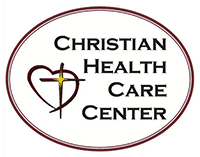
As anyone who’s ever had a sip of water go “down the wrong pipe” knows, breathing and swallowing are closely related. Especially in older adults, throat-related problems can make it difficult to swallow food properly. Among the more common issues are ones called “dysphagia” and “aspiration.”
Dysphagia is a condition in which a person has trouble swallowing, often because throat muscles aren’t working properly. Dysphagia is common in people who’ve had a stroke, according to the American Stroke Association, because strokes can reduce throat sensation. Dysphagia also is common in people with Alzheimer’s disease or dementia.
Aspiration is a related condition in which foods or liquids pass into a person’s lungs instead of into the stomach. Aspiration is often caused by dysphagia.
In most cases, a person who has aspirated food or liquid will attempt to cough it up; the body’s typical response is to try to force foreign objects back from whence they came.
Repeated aspiration can be damaging to the lungs or lead to pneumonia, and of course choking can block a person’s ability to breathe.
Have you noticed a family member or friend eating, chewing or swallowing differently lately?
Below are some common signs of aspiration caused by dysphagia. If you notice any of these symptoms, encourage the person to call their doctor to discuss the possibility of dysphagia. Of course, if someone is having trouble breathing or feels that something is stuck in his or her throat, seek medical attention immediately.
- frequent coughing, especially before or after swallowing
- heavy drooling, especially when eating
- difficulty chewing
- sneezing or runny nose at mealtimes
- refusal to eat certain foods
- difficulty swallowing certain foods
- pain when swallowing
- fever after eating (within 30 minutes to an hour)
- shortness of breath or tiredness while eating
- heartburn or chest discomfort
If these or similar signs or symptoms are present, a physician’s diagnosis will be necessary to confirm aspiration from dysphagia.
Typical treatment can involve physical therapy, medicine and, sometimes, surgery. CHCC’s in-house therapy team works with people who have swallowing challenges and might be able to provide outpatient services to a friend or family member recovering from stroke, if needed. The doctor also might suggest other methods for managing dysphagia, including eating smaller bits of food, not talking while eating, eating when most alert and doing exercises to strengthen the lips and tongue.
Here at our Lynden skilled nursing and therapeutic rehabilitation center, team members take part in regular training to help identify dysphagia and aspiration and to assist residents with swallowing difficulties.
Swallowing challenges are important to monitor in elderly loved ones, as they can be indicators of — or lead to — something serious. As the Mayo Clinic notes, swallowing is a complex process, with many factors that could interfere.
